
Amani Fathima was 28 when she took the vacation that ruined her life.
In late 2014, she and her husband, Hussaifa, and their three-year-old son Kisar, left her in-laws’ home in Mumbai for Bahrain. It was to be the start of an exciting tour of the Middle East—a break from their dull, middle-class life in Kurla West. At least, that is what her husband had told her.
Their host in Bahrain was a friend of Hussaifa, a man Fathima referred to as ‘bhai: The family spent three months in the country, before they packed their bags for Turkey.
In Istanbul, they checked into a hotel room. Fathima remembers being over the moon. She was pregnant with their second child, and spent most of her time in the hotel room. Hussaifa would go out often to meet his friends.
After spending five days in Istanbul, they headed south to the Turkey-Syria border. It was 2015, and things had taken a dark turn in the region. An extremist group called Islamic State had captured swathes of territory in Syria and neighbouring Iraq, and declared itself a caliphate. Its reach extended from Mosul in Iraq in the east, to the outskirts of Aleppo in Syria, 600km to the west.
Abu Bakr al-Baghdadi, the Iraqborn IS chief, had called upon all Muslims to join his caliphate. Hussaifa wanted to answer that call. He took Fathima and Kisar to the northern periphery of IS-held territory—a small town called Tell Abyad, close to the Turkey-Syria border. “I did not know where my husband was taking me,’ Fathima told THE WEEK. “T did not have any option but to follow him. I still believe that he, too, did not know what lay next for us. We were following bhai’s instructions over the phone.’
Tell Abyad, which was part of Syria’s Raqqa province, had fallen in 2014. IS had plundered the town and driven away its diverse population of Syrians, Kurds, Arabs and Assyrians.
Esta historia es de la edición January 19, 2020 de THE WEEK.
Comience su prueba gratuita de Magzter GOLD de 7 días para acceder a miles de historias premium seleccionadas y a más de 9,000 revistas y periódicos.
Ya eres suscriptor ? Conectar
Esta historia es de la edición January 19, 2020 de THE WEEK.
Comience su prueba gratuita de Magzter GOLD de 7 días para acceder a miles de historias premium seleccionadas y a más de 9,000 revistas y periódicos.
Ya eres suscriptor? Conectar
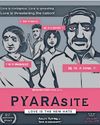
POSTERS OF PROTEST
Appupen is a cartoonist who has published a few graphic novels, the latest being Dream Machine, about how AI can be a great 1 tool for an! authoritarian regime.
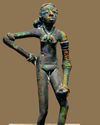
CLASH OF THE CIVILISATION
Even as the discovery of the Indus Valley Civilisation completes a century, some key aspects of this ancient culture remain mysterious, including its script. While the controversy over whether it was disrupted by an Aryan invasion may now be discredited, the debate over Indus ancestry and current links continues
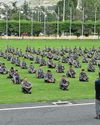
A PROVEN PATHWAY TO PEACE
Low-cost, easy to implement, immediate results, and scientifically verified.

FOOTBALL GIVES THEM A KICK
For the children of Manipur and Mizoram, the great game is a way to a prosperous future
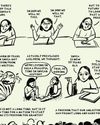
BATTLE FOR TOMORROW
Over the past decade, much has been said about India's potential as a leading global power.

THE TONGUE THAT TURNED
Why Greek survived while Latin and Sanskrit declined

USTAD ZAKIR HUSSAIN 1951-2024: HIS MUSIC WAS THERAPY TO THE WORLD
Flautist and Grammy co-winner Rakesh Chaurasia remembers the maestro

The magic of indigo
I really can't imagine why more of us don't throng Goa each December for the Serendipity Arts Festival alone. The festival, in its ninth year now, has the entire Panjim town celebrating.

NEW YEAR.NEW HOPE
EQUITY MARKETS HAVE TURNED VOLATILE OF LATE. WHAT TO EXPECT IN THE NEW YEAR
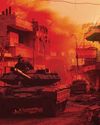
Seeking middle ground in Middle East
The collapse of assumptions is like the end of the world-or worldview. We assumed conwith the 20th century. But wars in Russia-Ukraine, Gaza, Yemen, Sudan, Somalia and Lebanon prove us wrong. Western defence officials now raise the nuclear threat level.